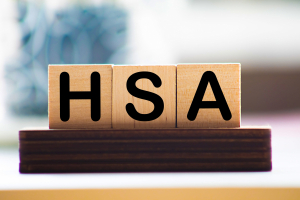HSAs
Health Savings Accounts (HSAs) have become a popular way to pay for out-of-pocket medical expenses and/or save for future medical expenses. HSAs are considered by many to be the “unicorn” of financial accounts. The primary reason for this claim to fame are the triple tax advantage features of HSAs.
On May 10, 2021, the Internal Revenue Service (IRS) published Rev. Proc. 2021-25 which includes the 2022 limits for qualified high deductible health plans (HDHPs) and Health Savings Accounts (HSAs). Below is a summary of these limits:
Minimum Deductible to Qualify as an HDHP
• Single-only HDHP coverage = $1,400
The economic stimulus bill that we’ve all been hearing about has officially been approved by Congress and was signed into law by President Donald Trump on Friday. This $2 trillion bill will provide stimulus checks to many Americans, increase unemployment benefits for workers and provide low interest loans for many small businesses, among many other things.
The IRS has released Revenue Procedure 2019-44 which details the 2020 pre-tax limits for the Health FSA and Commuter Plans. These limits are effective for plan years that begin on or after January 1, 2020.
It’s no surprise that more and more employers are offering qualified high deductible health plans (HDHPs) to their employees, and some employers are combining Health Reimbursement Arrangements (HRAs) and Health Savings Accounts (HSAs) to alleviate a portion of the deductible and/or out-of-pocket expenses that employees are exposed to. However, you have to be very careful with the HRA plan design in order to preserve HSA eligibility for employees.
Health Savings Accounts (HSAs) allow eligible individuals to put money aside tax-free to pay for out-of-pocket medical expenses, but HSAs work differently than other tax-advantaged accounts. Here are 10 helpful tips and reminders as the year comes to an end.
Why employees should max out their HSA contributions
On May 10th, the Internal Revenue Service (IRS) published Revenue Procedure 2018-30 which includes inflation adjustments to qualified high deductible health plans (HDHPs) and Health Savings Account (HSA) contribution limits.
On April 26, the Internal Revenue Service (IRS) announced relief for taxpayers with family coverage under a High Deductible Health Plan (HDHP) who can contribute to a Health Savings Account (HSA).
Last month, U.S. Representative Mike Kelly (R -PA) introduced the Bipartisan HSA Improvement Act. The proposed legislation would improve and enhance Health Savings Accounts (HSAs), and unlike most other HSA initiatives, this bill has bipartisan support.
HSAs have been an agenda item for the Republican party since their inception in 2004, but they are now gaining support amongst Democrats too. The Bipartisan HSA Improvement Act is co-authored by Rep. Earl Blumenauer (D-OR) and is being co-sponsored by a mixture of Republicans and Democrats including Erik Paulsen (R-MN), Ron Kind (D-WI), Terri Sewell (D-AL) and Brian Fitzpatrick (R-PA).










